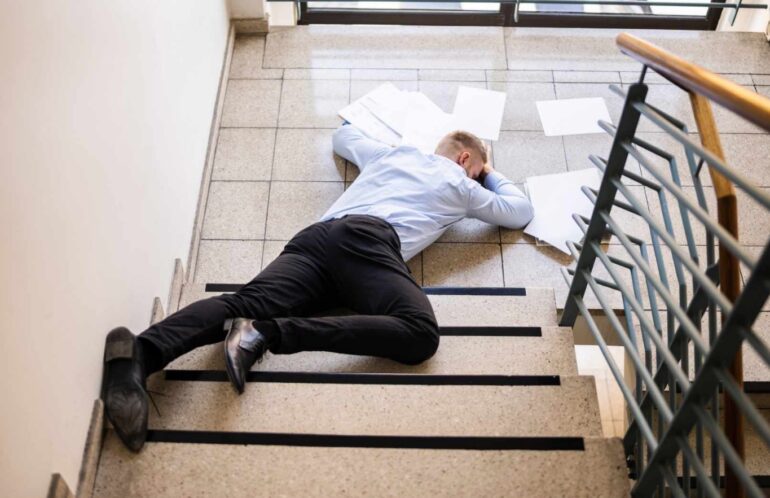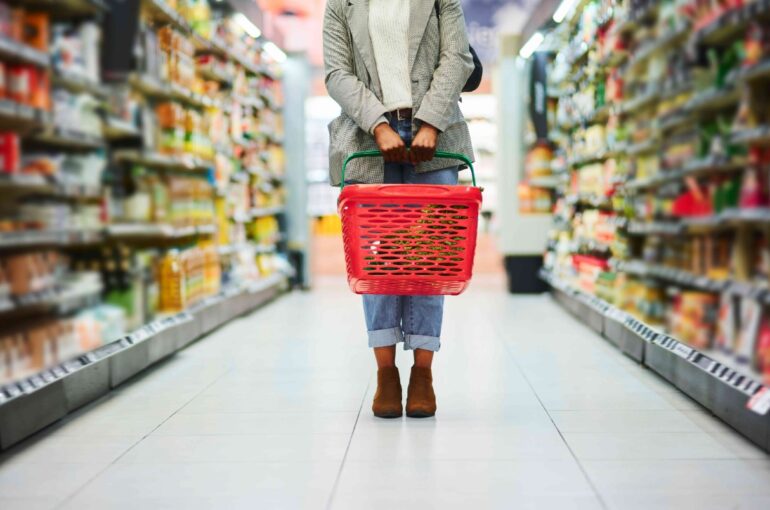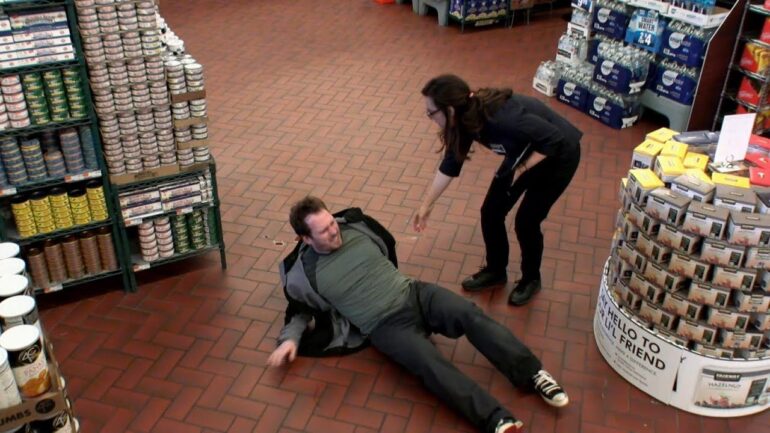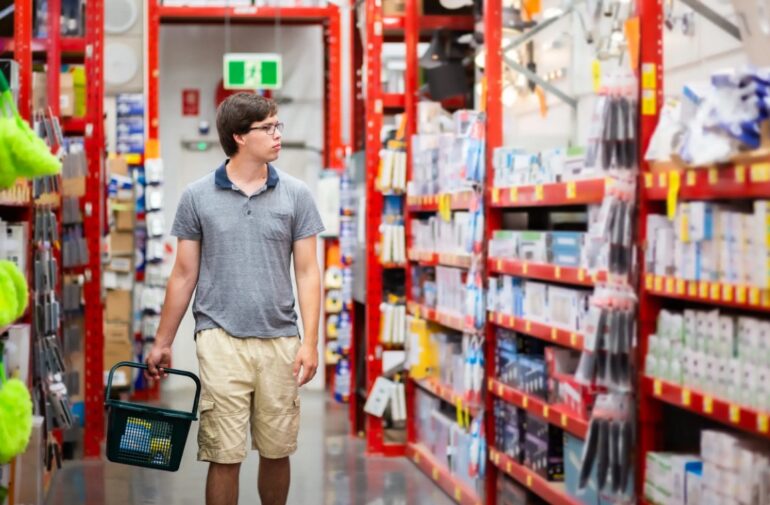Every year, thousands of shoppers experience slip and fall accidents in retail environments, leading to a range of injuries from minor bruises to serious, life-altering conditions. The bustling nature of stores, combined with potential hazards, makes it crucial for shoppers to be aware of their surroundings and take preventive measures to ensure their safety.
This article aims to guide you on how to minimize the risk of slip and fall accidents while shopping.
Understanding Slip and Fall Accidents

Slip and fall accidents refer to incidents where an individual loses their footing and falls, often resulting in injury. These accidents can occur due to various factors such as wet floors, uneven surfaces, or cluttered pathways.
According to the National Floor Safety Institute (NFSI), slips and falls account for over 1 million hospital emergency room visits annually, highlighting the prevalence and impact of these incidents.
Common Hazards in Stores
Several hazards in stores can lead to slip and fall accidents, including:
- Wet floors: Spills, recent cleaning, and entryways wet from rain or snow are common culprits.
- Cluttered aisles: Boxes, merchandise, and other obstacles can obstruct walkways, making it easy for shoppers to trip.
- Uneven surfaces: Loose floor tiles, rugs, or transitions between different flooring types can catch shoppers off guard.
- Poor lighting: Insufficient lighting can make it difficult to spot potential hazards on the floor.
Legal Framework Surrounding Slip and Falls
Store owners have a legal obligation to ensure their premises are safe for customers. This includes regular inspections, prompt cleanup of spills, and adequate warnings of potential hazards. When they fail in these duties, they can be held liable for injuries resulting from slip and fall accidents.
Shoppers who suffer injuries under such circumstances may be entitled to compensation for medical bills, lost wages, and pain and suffering. For specific legal advice regarding slip and fall accidents in stores like Walmart, consulting a Walmart slip and fall lawyer can provide clarity on your rights and options.
Preventive Measures for Shoppers

Before Shopping
Researching stores beforehand can help you choose those with a good safety record. Online reviews and complaints can be a window into a store’s attention to safety.
During Shopping
- Wear appropriate footwear: Shoes with good traction can significantly reduce the risk of slipping, especially on wet or uneven surfaces.
- Stay alert: Keep an eye out for potential hazards like spills, uneven floors, or cluttered aisles.
- Use support: Leverage shopping carts, handrails, and other supports to maintain balance in precarious situations.
In Hazardous Conditions
- When faced with freshly cleaned or wet floors, take slow, small steps to maintain your balance.
- Avoid cluttered or poorly lit aisles when possible. If you must navigate these areas, proceed with extra caution.
Taking proactive steps to safeguard against slip and fall accidents is essential for ensuring a safe shopping experience. By staying informed about common hazards and adopting preventive measures, shoppers can significantly reduce their risk of injury.
What to Do If You Experience a Slip and Fall in a Store

Despite taking all the necessary precautions, accidents can still happen. If you experience a slip and fall in a store, it’s crucial to know the immediate steps to take:
- Seek medical attention: Even if your injuries seem minor, some symptoms may not be immediately apparent. It’s important to get a professional assessment.
- Document the scene: Take photos of the area where you fell and any conditions that contributed to the accident, such as wet floors or obstructions.
- Notify store management: Report the incident to the store manager or supervisor. Ensure they make a report of the incident and ask for a copy for your records.
- Collect evidence and witness information: If there were any witnesses to your fall, get their contact information. They could provide valuable statements later on.
- Seek legal advice: Contacting a personal injury lawyer can help you understand your rights and the potential for compensation. An experienced attorney can guide you through the process and advocate on your behalf.
For comprehensive legal assistance and advice tailored to slip and fall incidents, consider reaching out to Adley Law Firm, which specializes in personal injury cases, ensuring you get the support and representation you need.
How Stores Can Prevent Slip and Fall Accidents
Store owners and managers play a critical role in preventing slip and fall accidents. Here are some measures they can implement:
- Regular maintenance: Conducting routine checks and maintenance can help identify and mitigate hazards before they cause accidents.
- Prompt hazard removal: Spills should be cleaned, and obstructions removed as soon as they are noticed to prevent accidents.
- Adequate signage: Warning signs should be placed in visible areas to alert shoppers of potential dangers like wet floors or construction areas.
- Employee training: Staff should be trained on safety protocols, including how to properly signal hazards and assist customers in navigating them safely.
Conclusion
Slip and fall accidents in stores can have serious consequences, but by taking preventive measures and knowing what to do if an accident occurs, shoppers can protect themselves from harm. Both shoppers and store owners have roles to play in creating a safe shopping environment.
By staying vigilant and informed, we can work together to reduce the risk of slip and fall accidents.
FAQs

What should I wear to minimize the risk of slip and fall accidents in stores?
Opt for shoes with non-slip soles and good tread to improve traction on slippery surfaces.
Can I sue a store if I slip and fall but don’t have severe injuries?
Yes, you can pursue a claim if you can prove the store was negligent, even if your injuries are not severe. Consulting with a personal injury lawyer can help you understand your options.
How can I report a safety hazard in a store?
Report any hazards immediately to store employees or management. If the hazard is not addressed, you may consider contacting local health or safety authorities.
Are stores required to compensate for slip and fall accidents?
If it can be proven that the store was negligent in maintaining a safe environment, they may be liable for injuries sustained. Compensation can cover medical expenses, lost wages, and pain and suffering.
